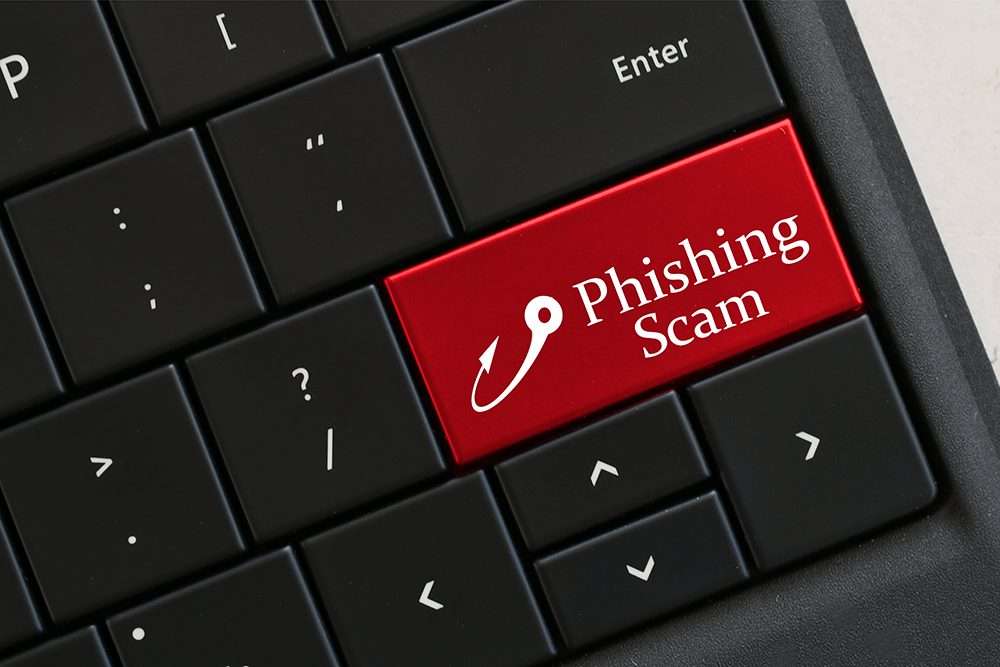
Don’t Take the Bait... Watch out for Phishers!
1 min read
When in your email…
- Be mindful of opening messages from unknown senders.
- Be cautious with all attachments and, where applicable, scan them before downloading or opening.
- Look for misspellings and poor grammar in emails. These are red flags for phishing scams.
- Confirm that the name of the sender and the email address are consistent.
- Hover the cursor over a link to see the address. If it’s different from the URL (the website address) in the message, it’s probably a phishing email.
- Retype the website address into the browser instead of clicking the link in the email. Do not copy and paste — it can be deceptive and add risk.
- Be aware of emotional triggers. Look out for suspicious messages that contain threats, request urgent action, or create fear.
- Don’t share your passwords or other personal information with anyone.
- Be aware of fraudulent links posted on social media that could compromise and infect your or other people’s social media accounts and network.
- Report any suspicious emails to the relevant organisation or to the police.
Check out more stories like this

1 min read
JN Supporting MSME Recovery from Melissa
Micro and small businesses devasted by Hurricane Melissa are set...

1 min read
Renting a Property? Five Reasons to Get a Signed Rental Agreement
You found a nice home in a great location, and...

1 min read
Cookshop Operator Gets Boost to Restart Following Hurricane
For more than a decade, Adasma Brown, affectionately known as...